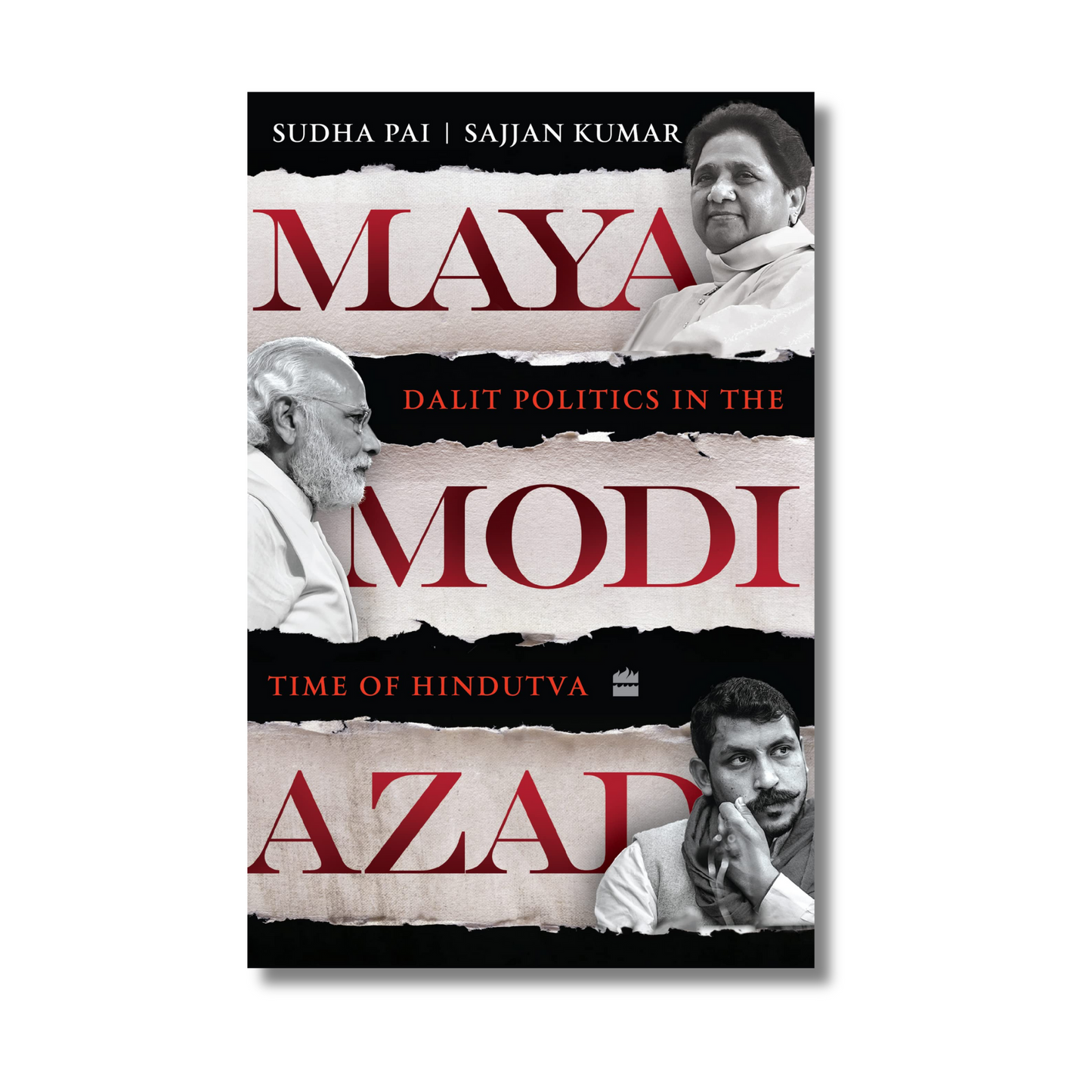

Delve into the complex and ever-evolving landscape of Dalit politics in India with the compelling book, "Maya, Modi, Azad." Written by Sudha Pai and Sajjan Kumar, this richly researched and insightful work sheds light on the political churning and sociopolitical movements of Dalits in contemporary India.
Praised by prominent political figures like Shashi Tharoor and Swapan Dasgupta, this book offers a deep understanding of the inherent contradictions, compromises, and complexities in Dalit sociology and political movements. Focusing on the state of Uttar Pradesh, the authors examine the contrasting trends of political protest against and electoral preference for the right wing within the Dalit community.
The last decade has witnessed significant changes in Dalit politics, with the decline of the Bahujan Samaj Party and the rise of identity politics, as well as a section of Dalits shifting towards the Bharatiya Janata Party and its redefined disadvantaged Hindutva. Amidst this backdrop, a new Dalit leader, Chandrashekhar Azad, has emerged, challenging both Hindutva hegemony and the BSP while attempting to revive the Dalit movement.
Intriguingly, "Maya, Modi, Azad" unravels the dynamics of this triangular contestation and offers valuable insights into democratic politics in India. As the country approaches a potentially divisive general election in 2024, understanding the intricacies of Dalit politics becomes crucial.
If you're keen to explore the complexities and transformations of Dalit politics and its impact on the Indian political landscape, "Maya, Modi, Azad" is a must-read. With its astute analysis and comprehensive research, this book is an essential addition to your understanding of the ever-changing socio-political dynamics in India.
Praised by prominent political figures like Shashi Tharoor and Swapan Dasgupta, this book offers a deep understanding of the inherent contradictions, compromises, and complexities in Dalit sociology and political movements. Focusing on the state of Uttar Pradesh, the authors examine the contrasting trends of political protest against and electoral preference for the right wing within the Dalit community.
The last decade has witnessed significant changes in Dalit politics, with the decline of the Bahujan Samaj Party and the rise of identity politics, as well as a section of Dalits shifting towards the Bharatiya Janata Party and its redefined disadvantaged Hindutva. Amidst this backdrop, a new Dalit leader, Chandrashekhar Azad, has emerged, challenging both Hindutva hegemony and the BSP while attempting to revive the Dalit movement.
Intriguingly, "Maya, Modi, Azad" unravels the dynamics of this triangular contestation and offers valuable insights into democratic politics in India. As the country approaches a potentially divisive general election in 2024, understanding the intricacies of Dalit politics becomes crucial.
If you're keen to explore the complexities and transformations of Dalit politics and its impact on the Indian political landscape, "Maya, Modi, Azad" is a must-read. With its astute analysis and comprehensive research, this book is an essential addition to your understanding of the ever-changing socio-political dynamics in India.
- Choosing a selection results in a full page refresh.
- Opens in a new window.


